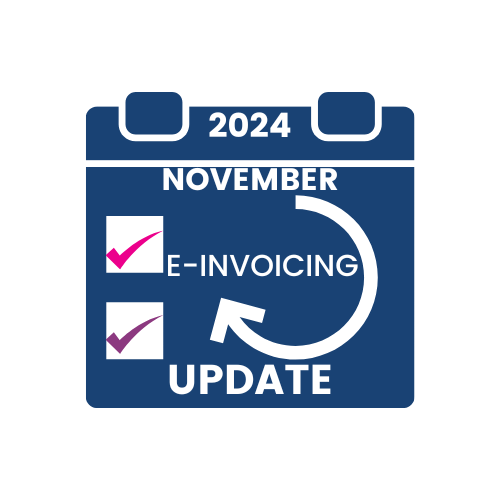Italy
EU Council proposal decision might extend the derogation for Italy’s mandatory e-invoicing. The proposal decision published on 10 October 2024 specifies that Italy should be granted further derogation either until 31 December 2025 or until the date from which the Member States may apply national decisions following the adoption of the ViDA proposal, whichever occurs first.
Portugal
Portugal’s 2025 Budget proposes delays for QES requirement and SAF-T submission adoption. Initially, the Qualified Electronic Signature (QES) requirement was set to come into force on 1 January 2021. However, due to requests from businesses and industry stakeholders for more time to adapt their systems, it was postponed multiple times.
El Salvador
The Legislative Assembly imposes new obligations to mandatory and optional invoice recipient data. On 19 September 2024, the Legislative Assembly of El Salvador published Legislative Decree No. 94 of 2024. The decree poses new obligations to which recipient data is considered mandatory or optional in the invoicing document.
France
France gets rid of the hybrid Y-Model, replacing it with 5-Corner model. The French Administration has announced that they will scrap the invoice distribution functions of their public invoicing platform (PPF) and limit its functionality to data collection. Moving away from their hybrid Y-Model (a hybrid of a Centralized Exchange model and 5-Corner model), they will let the certified service providers (PDPs) handle all e-invoice flows.
Bolivia
The tax authority of Bolivia, SIN, published a new resolution that requires a new group of taxpayers to issue electronic tax documents (Sp.: Documentos fiscales digitales).
The new obligation will take effect on 1 March 2025. As of that date, taxpayers in the scope must exclusively start issuing only electronic tax documents through their assigned modality, according to the provision established in resolution N° 102100000011.
Germany
The German Ministry of Finance (BMF) has released the final version of the previously released draft letter with detailed information on the upcoming e-invoicing obligation.
On 15 October 2024, the BMF officially published the final version of the letter. The content remains mostly the same as the draft version, with some rewordings, paragraph changes, and additional clarifications.
Philippines
Philippines imposes new VAT obligations for foreign digital service providers. The Philippine Congress passed legislation making foreign digital service providers liable to VAT. The obligation concerns both B2C and B2B transactions.
United Arab Emirates
As reported in a previous update, the UAE has announced plans to introduce a CTC mandate. The country has now made further progress by launching a dedicated e-invoicing landing page through the Ministry of Finance (MoF), which serves as the primary resource for all official announcements and updates related to the new mandate.
The UAE Ministry of Finance introduced legislative updates that follow the recent launch of the dedicated e-invoicing obligation landing page. This step further demonstrates the country’s commitment to implement e-invoicing by the planned timelines.
Malaysia
Malaysia’s e-invoicing mandate second phase begins January 2025. Following Malaysia’s first phase of the e-invoicing mandate in August 2024, the Inland Revenue Board of Malaysia (IRBM) is rolling out the second phase to expand mandatory electronic invoicing requirements to targeted businesses.
Spain
On 17 October 2024, the Spanish Official State Gazette (BOE) has published Order HAC/1177/2024, detailing specifications for computer and electronic invoicing systems (SIF) used by businesses and professionals. This order supports compliance with the invoicing record standards set by Royal Decree 1007/2023 (Veri*Factu law) and the invoicing obligations under Royal Decree 1619/2012.
Poland
The Polish government published assumptions to the VAT amendment on the KSeF obligation, including an additional half-year to adopt certain requirements and the possibility for taxpayers to issue invoices offline until the end of 2026.
New Zealand
E-invoicing will become the new normal for B2G transactions in 2026. The New Zealand government introduced a measure to enhance payment timelines for small businesses and increase the adoption of the e-invoicing framework (invoice digital exchange via Peppol) among government organizations and enterprises.
EU
During the ECOFIN meeting on 5 November 2024, the European Council dictated the status of the latest version of the ViDA proposal. The document addresses the three pillars, refining the matters that contributed to the delay in the proposal’s approval.
The European Standard on Electronic Invoicing (EN 16931–1) is being revised to support the upcoming requirements stipulated in the ViDA proposal and legal provisions in countries like Germany.
Dominican Republic
On 10 October 2024, the General Directorate of Internal Revenue (DGII) published Decree 587-24, providing further implementing regulations for the national e-invoicing system. The decree stipulates possible extension periods for taxpayers to adhere to the mandate and several technical changes to handling the electronic tax receipts.
India
On 5 November 2024, the Goods and Services Tax Authority (GSTN) in India announced that taxable persons with annual aggregate turnover (AATO) INR 10 crores and above (ca. EUR 110 000) will have a 30-day window to report e-invoices as of 1 April 2025.




